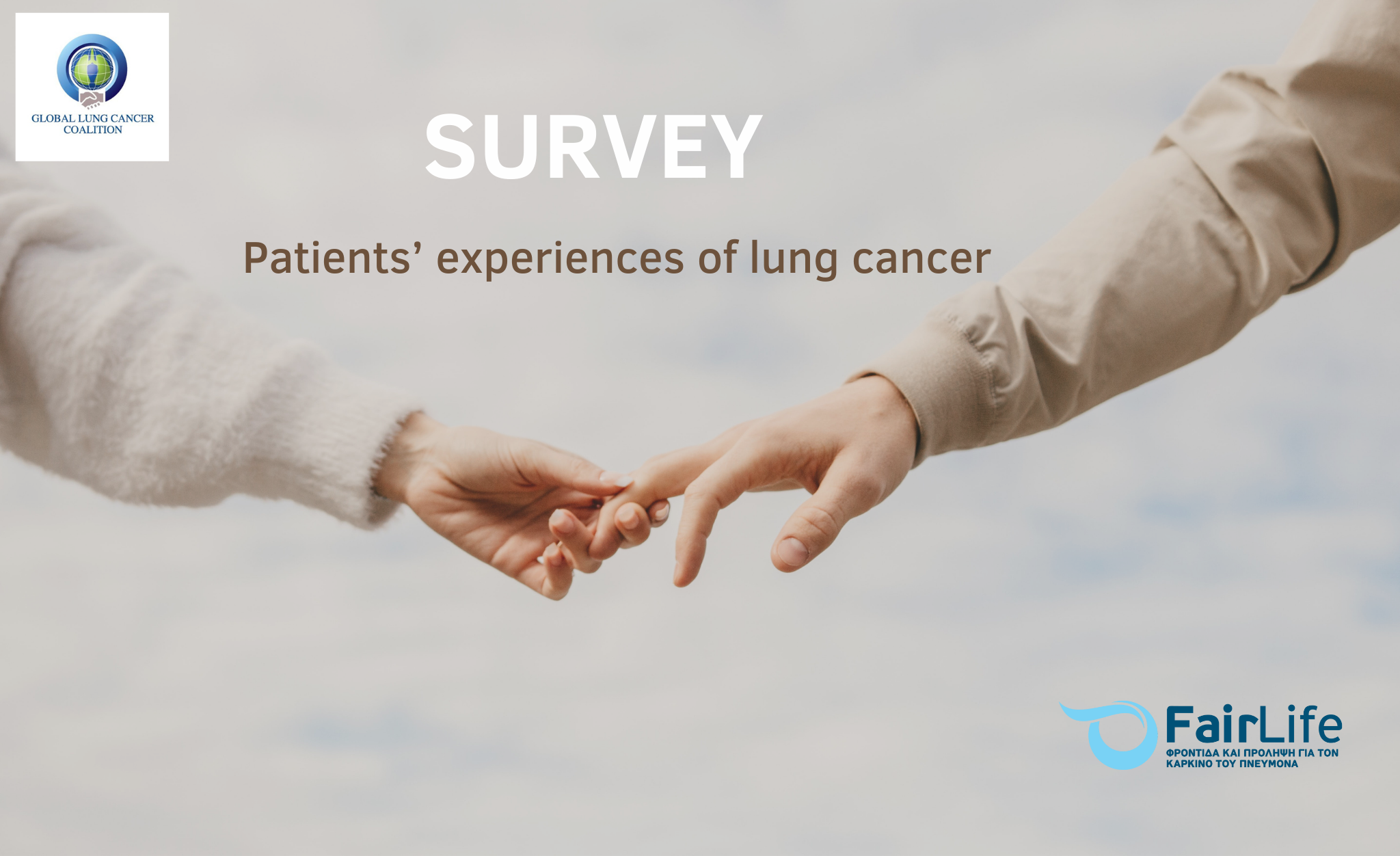
Patients’ experiences of lung cancer during COVID-19
Insights from Greece
The COVID-19 pandemic has had a profound impact on patients, including those living with lung cancer, and healthcare systems around the world.
The Global Lung Cancer Coalition (GLCC), an alliance of 42 patient organisations from 30 countries across the world, wanted to understand if COVID-19 is still impacting the care patients receive, and to compare the experiences of patients in different countries. In December 2021, the GLCC shared a global online patient experience survey. The survey ran for eight weeks and received 555 responses from patients across 21 countries.
The GLCC’s member in Greece, FairLife Lung Cancer Care ran the survey in our country. 89 lung cancer patients or their carers responded.58% of respondents were women and 41% men. 79% have been diagnosed in the last five years, of which 66% have been diagnosed with non-small cell lung cancer.
Check out the findings below:
Greece findings (English) – GLCC patient experience survey 2022
The main findings for Greece
- Treatment: 41% of responding patients are currently having treatment. 44% had fnished treatment, and 4% had just been diagnosed.
- Involvement in decision-making: 61% said they felt involved to some extent in decisions about their treatment and care. 22% said they were not involved but would like to have been.
- Accessing information: Nearly half (48%) of the respondents said they got the information they needed at the right time. But a third (36%) had to look for more information and 11% said the information was given too late.
- Screening program: 15% of responding patients said they were aware of a lung cancer screening programme in Greece.Of those, three patients had attended a screening appointment (but their cancer was diagnosed in a different way).83% said they would attend a screening appointment if they were invited.
- Emotional impact on patients: Waiting to fnd out if treatment was working had the biggest emotional impact on patients, followed by waiting for test results and getting the diagnosis. Also, 50% of patients are worried about relapse,while a third (37%) feel worried or depressed about their health and future. 42% of patients said family and friends were the most helpful in dealing with their diagnosis. Some had found help from speaking to other patients (38%) or to their treatment team (25%).
- Covid-19 pandemic and patient effects: Regarding the vaccine against Covid-19 infection, 93% of responding
patients said they have been vaccinated against COVID-19. Only three respondents chose not to get the vaccine. During the pandemic, 41% of patients said their treatment has continued as normal and 37% had carried on
attending appointments. Only two patients said that their face-to-face appointments had been swapped for virtual
appointments (either telephone or video) Only two patients said that their face-to-face appointments had been replaced by virtual appointments (either by phone or video). The majority of patients prefer face-to-face appointments when fnding out their diagnosis (76%), for the frst consultation (81%), and for check-ups or changes to treatment (80%). 50% would prefer telephone if they are worried about something.
Call to action
The members of the GLCC are calling for the implementation of the rights outlined in its Patient
Charter, namely ensuring that all lung cancer patients have access to quality healthcare;
informed self-determination, which includes involvement in decision-making; and physical and
mental integrity.
More info
The GLCC’s member in Greece is FairLife Lung Cancer Care: www.fairlifelcc.com
For more information about this survey and the work of the GLCC, please visit our website:Global Lung Cancer Coalition | The Voice Of Lung Cancer Patients